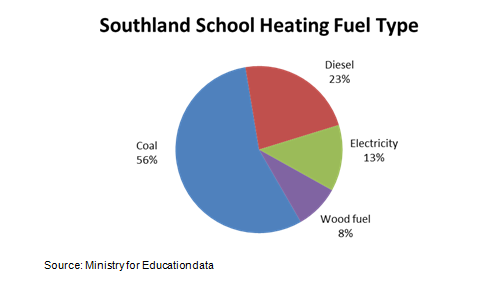SCHOOLS
There are more than 70 schools in Southland ranging in size from 15 students at St Patricks in Nightcaps to more than 1,800 students at James Hargest College in Invercargill. The heat plants are also variable with more than half of schools with coal fired boilers.
There are multiple reasons why schools may choose to switch to wood fuels such as:
- Expiry of discharge consent
- Old or failing boilers
- Environmental reasons
Whatever the reason wood energy can be a good choice for schools as it is a renewable energy option with relatively low running costs and is the Ministry of Education’s preferred choice in Otago and Southland. Wood energy is a cheaper long-run option, and it is relatively easy to convert to using wood energy if your school has an existing hot water heating system.
Wood provides a safe, clean, reliable and economical alternative to other forms of energy. In the past, fuel for heating schools came from non-renewable sources like coal, gas or oil and was used in hot water heating systems. However, energy sources like coal have a much higher rate of particle emissions (particle emissions from wood fuel are between 1/3 and 1/5 of those from coal).
The business case for converting schools to woodchip should not be considered on the fuel price alone especially for coal. In the case of a straight comparison against diesel, LPG or electricity prices then woodchip is very competitive. There are numerous examples of Southland schools that have converted to woodchip including Donovan and Takitimu Primary (woodchip), Waihopai and West Gore Primary (woodchip), New River Primary (pellets) and Menzies College (pellets). If you would like a tour of one of these systems, please don’t hesitate to contact us.
One of the major hurdles that can slow or prevent the use of wood energy is the relatively cheap cost of coal, against which renewable fuel sources struggle to compete on a fuel cost basis alone.
However, taking into account the full lifecycle cost of a boiler shows the true cost. In 2013, the Ministry of Education commissioned an energy options report for Southland schools. The general conclusion was that over a 25 year period the woodchip boiler option has the lowest life cycle cost for all three sizes of school. For more information on this click here



